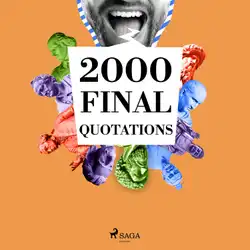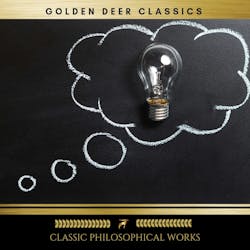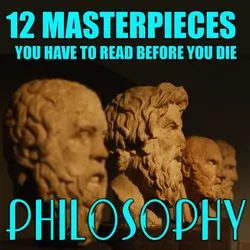Immanuel Kant's "The Critique of Pure Reason" is a pivotal work in Western philosophy that meticulously examines the relationship between human experience and knowledge. Written in a dense yet eloquently rational style, Kant presents his groundbreaking ideas on metaphysics, epistemology, and the limits of human reason. The book delves into the nature of perception and understanding, positing that while our experiences are shaped by sensory input, our cognitive faculties impose inherent structures that govern our understanding of reality. This seminal text emerged during the Enlightenment, a period characterized by a burgeoning confidence in human reason and a re-evaluation of traditional metaphysical notions. Kant, born in 1724 in K√∂nigsberg, Prussia, was influenced by his background in mathematics, physics, and the rationalist and empiricist traditions. His desire to reconcile the empiricist's emphasis on experience with the rationalist's focus on innate ideas provoked him to explore the fundamental faculties of knowledge. Encapsulating the complexities of human understanding and the very limits of reason, Kant's work became a cornerstone for later philosophical inquiry, challenging scholars and laypersons alike to reconsider the foundations of human cognition. For readers keen to explore the complexities of knowledge and the interplay between perception and reality, "The Critique of Pure Reason" is an essential resource. Kant'Äôs meticulous arguments and innovative theories beckon those who seek to engage with profound philosophical questions, making this work a crucial text for anyone interested in the evolution of thought from the Enlightenment to contemporary philosophy.

Harvard Classics: All 71 Volumes
Johann Wolfgang von Goethe, Gotthold Ephraim Lessing, Bjørnstjerne Bjørnson, Thomas Carlyle, Theodor Storm, Plato, Theodor Fontane, René Descartes, Gottfried Keller, Mark Twain, Immanuel Kant, Charles Darwin, Martin Luther, Robert Louis Stevenson, William Shakespeare, Dante Alighieri, Euripides, Percy Bysshe Shelley, Charles Lamb, Henry David Thoreau, Henry James, Samuel Johnson, John Stuart Mill, Victor Hugo, David Hume, Joseph Addison, Jane Austen, John Locke, John Fletcher, Francis Beaumont, Leigh Hunt, Epictetus, Alphonse Daudet, Thomas De Quincey, Guy de Maupassant, George Eliot, Walter Scott, Laurence Sterne, Samuel Taylor Coleridge, Jonathan Swift, Christopher Marlowe, Wilhelm Grimm, William Hazlitt, Marcus Tullius Cicero, Daniel Defoe, Aesop, Richard Henry Dana, Henry Fielding, John Dryden, Philip Massinger, Pedro Calderón de la Barca, Bret Harte, George Sand, John Ruskin, Oliver Wendell Holmes, Ernest Renan, Robert Burns, David Garrick, Ralph Waldo Emerson, John Webster, Washington Irving, Izaak Walton, John Bunyan, Juan Valera, Alfred de Musset, James Russell Lowell, Charles Augustin Sainte-Beuve, Nathaniel Hawthorne, Homer, Edmund Burke, Plutarch, Molière, Aeschylus, Michael Faraday, Sophocles, William Makepeace Thackeray, Benjamin Franklin, Edward Everett Hale, Pierre Corneille, Jean Racine, Voltaire, Robert Browning, Oliver Goldsmith, Thomas Dekker, John Milton, Aristophanes, Blaise Pascal, Virgil, Richard Brinsley Sheridan, Simon Newcomb, William Penn, Walter Bigges, Philip Sidney, Herodotus, Walter Raleigh, Francis Bacon, Giuseppe Mazzini, Francis Pretty, George Berkeley, Thomas Hobbes, Adam Smith, Alessandro Manzoni, Abraham Cowley, Michel de Montaigne, Ben Jonson, John Woolman, Benvenuto Cellini, Sydney Smith, Jean Froissart, William Henry Harrison, William Harvey, Marcus Aurelius, Hans Christian Andersen, Thomas Malory, George Gordon Byron, Thomas à Kempis, Ivan Turgenev, Richard Steele, Thomas Browne, Archibald Geikie, Thomas Babington Macaulay, Leo Tolstoy, Fyodor Dostoevsky, Tacitus, William Roper, Hippocrates, Miguel de Cervantes, Thomas More, Friedrich von Schiller, Philip Nichols, Louis Pasteur, Joseph Lister, Jean Jacques Rousseau, Pliny the Younger, Charles W. Eliot, Edgar Alan Poe, Saint Augustine, Hermann Ludwig Ferdinand von Helmholtz, Francis Drake, Edward Haies, Niccolo Machiavelli, Ambroise Paré, William A. Neilson, Honoré Balzac, Alexander L. Kielland
book
Harvard's Classics Collection: Complete 71 Volumes : The Five Foot Shelf & The Shelf of Fiction - The Classic Literature & The Greatest Works of Fiction from Antics to Modern Age
Johann Wolfgang von Goethe, Gotthold Ephraim Lessing, Bjørnstjerne Bjørnson, Thomas Carlyle, Theodor Storm, Plato, Theodor Fontane, René Descartes, Gottfried Keller, Mark Twain, Immanuel Kant, Charles Darwin, Martin Luther, Robert Louis Stevenson, William Shakespeare, Dante Alighieri, Euripides, Percy Bysshe Shelley, Charles Lamb, Henry David Thoreau, Henry James, Samuel Johnson, John Stuart Mill, Victor Hugo, David Hume, Joseph Addison, Jane Austen, John Locke, John Fletcher, Francis Beaumont, Leigh Hunt, Epictetus, Alphonse Daudet, Thomas De Quincey, Guy de Maupassant, George Eliot, Walter Scott, Laurence Sterne, Samuel Taylor Coleridge, Jonathan Swift, Christopher Marlowe, Wilhelm Grimm, William Hazlitt, Marcus Tullius Cicero, Daniel Defoe, Aesop, Richard Henry Dana, Henry Fielding, John Dryden, Philip Massinger, Pedro Calderón de la Barca, Bret Harte, George Sand, John Ruskin, Oliver Wendell Holmes, Ernest Renan, Robert Burns, David Garrick, Ralph Waldo Emerson, John Webster, Washington Irving, Izaak Walton, John Bunyan, Juan Valera, Alfred de Musset, James Russell Lowell, Charles Augustin Sainte-Beuve, Nathaniel Hawthorne, Homer, Edmund Burke, Plutarch, Molière, Aeschylus, Michael Faraday, Sophocles, William Makepeace Thackeray, Benjamin Franklin, Edward Everett Hale, Pierre Corneille, Jean Racine, Voltaire, Robert Browning, Oliver Goldsmith, Thomas Dekker, John Milton, Aristophanes, Blaise Pascal, Virgil, Richard Brinsley Sheridan, Simon Newcomb, William Penn, Walter Bigges, Philip Sidney, Herodotus, Walter Raleigh, Francis Bacon, Giuseppe Mazzini, Francis Pretty, George Berkeley, Thomas Hobbes, Adam Smith, Alessandro Manzoni, Abraham Cowley, Michel de Montaigne, Ben Jonson, John Woolman, Benvenuto Cellini, Sydney Smith, Jean Froissart, William Henry Harrison, William Harvey, Marcus Aurelius, Hans Christian Andersen, Thomas Malory, George Gordon Byron, Thomas à Kempis, Ivan Turgenev, Richard Steele, Thomas Browne, Archibald Geikie, Thomas Babington Macaulay, Leo Tolstoy, Fyodor Dostoevsky, Tacitus, William Roper, Hippocrates, Miguel de Cervantes, Thomas More, Friedrich von Schiller, Philip Nichols, Louis Pasteur, Joseph Lister, Jean Jacques Rousseau, Pliny the Younger, Charles W. Eliot, Edgar Alan Poe, Saint Augustine, Hermann Ludwig Ferdinand von Helmholtz, Francis Drake, Edward Haies, Niccolo Machiavelli, Ambroise Paré, William A. Neilson, Honoré Balzac, Alexander L. Kielland
book
2000 Final Quotations
Marcus Aurelius, Jane Austen, Buddha, Anton Chekhov, Cicero, Emil Cioran, Confucius, Albert Einstein, Anne Frank, Mahatma Gandhi, Johann Wolfgang von Goethe, Carl Jung, Immanuel Kant, Friedrich Nietzsche, Marcel Proust, Arthur Schopenhauer, William Shakespeare, Baruch Spinoza, Leonardo da Vinci, Lao Zi
audiobook
The Complete Harvard Classics (2022 Edition) : All 71 Volumes (The Five Foot Shelf & The Shelf of Fiction)
Benjamin Franklin, John Woolman, Henry David Thoreau, Plato, Homer, Voltaire, Jean Jacques Rousseau, Immanuel Kant, Thomas Hobbes, Cicero, Marcus Aurelius, William Shakespeare, Friedrich von Schiller, William Makepeace Thackeray, John Ruskin, Edgar Alan Poe, William Penn, Epictetus, Francis Bacon, John Milton
book
Perpetual Peace: A Philosophical Essay
Immanuel Kant
book
Critique of Pure Reason
Immanuel Kant
audiobookbook
The Complete Harvard Classics - All 51 Volumes in One Edition : The Anthology of the Greatest Works of World Literature - Dr. Eliot's Five Foot Shelf
Plato, Marcus Aurelius, William Shakespeare, Benjamin Franklin, Homer, Friedrich von Schiller, William Makepeace Thackeray, John Ruskin, Robert Louis Stevenson, Edgar Alan Poe, Henry David Thoreau, Voltaire, Jean Jacques Rousseau, Immanuel Kant, Thomas Hobbes, John Woolman, William Penn, Epictetus, Francis Bacon, John Milton, Thomas Browne, Ralph Waldo Emerson, Robert Burns, Saint Augustine, Thomas à Kempis, Aeschylus, Sophocles, Euripides, Aristophanes, Marcus Tullius Cicero, Pliny the Younger, Adam Smith, Charles Darwin, Plutarch, Virgil, Miguel de Cervantes, John Bunyan, Izaak Walton, Aesop, Wilhelm Grimm, Jacob Grimm, Hans Christian Andersen, John Dryden, Richard Brinsley Sheridan, David Garrick, Oliver Goldsmith, Percy Bysshe Shelley, Robert Browning, George Gordon Byron, Johann Wolfgang von Goethe, Christopher Marlowe, Dante Alighieri, Alessandro Manzoni, Richard Henry Dana, Edmund Burke, John Stuart Mill, Thomas Carlyle, Pedro Calderón de la Barca, Pierre Corneille, Jean Racine, Molière, Gotthold Ephraim Lessing, Philip Sidney, Ben Jonson, Abraham Cowley, Joseph Addison, Richard Steele, Jonathan Swift, Daniel Defoe, Samuel Johnson, David Hume, Sydney Smith, Samuel Taylor Coleridge, William Hazlitt, Leigh Hunt, Charles Lamb, Thomas De Quincey, Thomas Babington Macaulay, James Russell Lowell, Michael Faraday, Hermann Ludwig Ferdinand von Helmholtz, Simon Newcomb, Archibald Geikie, Benvenuto Cellini, Michel de Montaigne, Charles Augustin Sainte-Beuve, Ernest Renan, Giuseppe Mazzini, Herodotus, Tacitus, Francis Drake, Philip Nichols, Francis Pretty, Walter Bigges, Edward Haies, Walter Raleigh, René Descartes, Jean Froissart, Thomas Malory, William Henry Harrison, Niccolo Machiavelli, William Roper, Thomas More, Martin Luther, John Locke, George Berkeley, Hippocrates, Ambroise Paré, William Harvey, Oliver Wendell Holmes, Joseph Lister, Louis Pasteur, Thomas Dekker, Francis Beaumont, John Fletcher, John Webster, Philip Massinger, Blaise Pascal, William A. Neilson
book
Classic Philosophical Works (Thus Spoke Zarathustra, The Apology of Socrates, Tao Te Ching...)
Plato, Friedrich Nietzsche, Herman Hesse, Leo Tolstoy, Immanuel Kant, Sun Tzu
audiobook
Critique of Judgement
Immanuel Kant
book
La Paz Perpetua :
Immanuel Kant
audiobook
12 Masterpieces You Have to Read Before You Die. Philosophy
Niccolo Machiavelli, Tommaso Campanella, Francis Bacon, Thomas More, John Stuart Mill, Immanuel Kant, Kahlil Gibran, Leo Tolstoy, G.K. Chesterton, Henry David Thoreau
audiobook
Crítica de la Razón Pura
Immanuel Kant
audiobook


